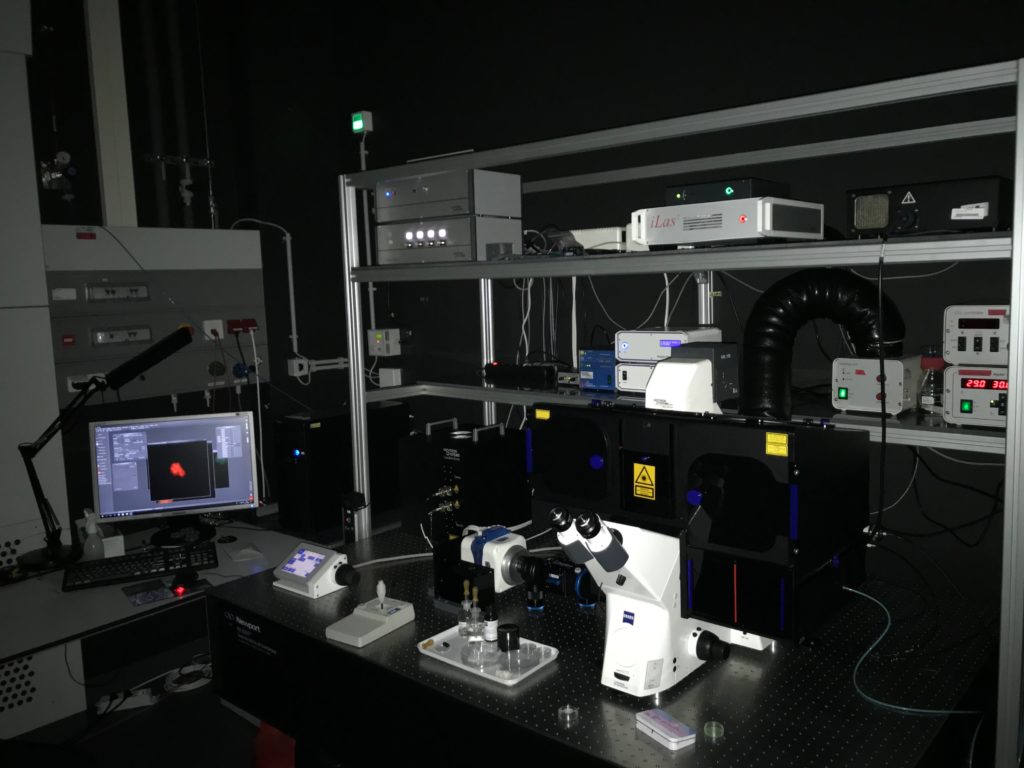Location: room I04.U1.018 (BFB)
Automated epifluorescence microscope, equipped with iLas 2 360° / Ring / Azimuthal TIRF module and (GATACA): This module is using a pair of fast galvanometers to be able to spin the laser in the back focal plane of the objective several times during a single exposure time. That way artifacts such as fringes or ring caused by laser interference patterns are averaged out.
- 360° TIRF imaging
- FRAP (with all laser lines)
- Photoactivation / -conversion (with all laser lines)
- Micro-patterning
- Widefield imaging
- DIC imaging (in combination with epifluorescence)
Microscope & sample conditions
- Temperature controlled chamber
- CO2 supply
Light sources
- Laser lines: 405 nm, 488 nm (100 mW), 561 nm (100 mW), 640 nm (150 mW) – Laser Quad Band Filter for TIRF application: 405/488/561/640 nm
- Lumencor Spectra-X Solid State/LED – light source: wavelength range 380-680 nm
- Halogen lamp
Objectives
- 10x / 0.3 air (WD 2.1 mm)
- 20x / 0.4 air (WD 8 mm)
- 20x / 0.8 air (WD 0.55 mm)
- 63x / 1.46 oil (WD 0.1 mm) – TIRF objective
- 100x /1.46 oil (WD 0.1 mm) – TIRF objective
Cameras
2 x Photometrics Evolve 512 EMCCD (512 x 512 pixels, 16 x 16 μm2)
Dual-Cam Filter Options
- Cairn TwinCam camera splitter (2 dichroic filter cube options) :
- cube: LP565
- cube: LP635
- Band-pass filters
- 525/50
- 595/50
- 630/75
- 670/50
- 690/50
Software
Visiview 4.4
System manual and additional material is available on SeaFile (login required).
Contacts
Laser Safety: Document in PPMS SSU portal
Booking: PPMS SSU portal

